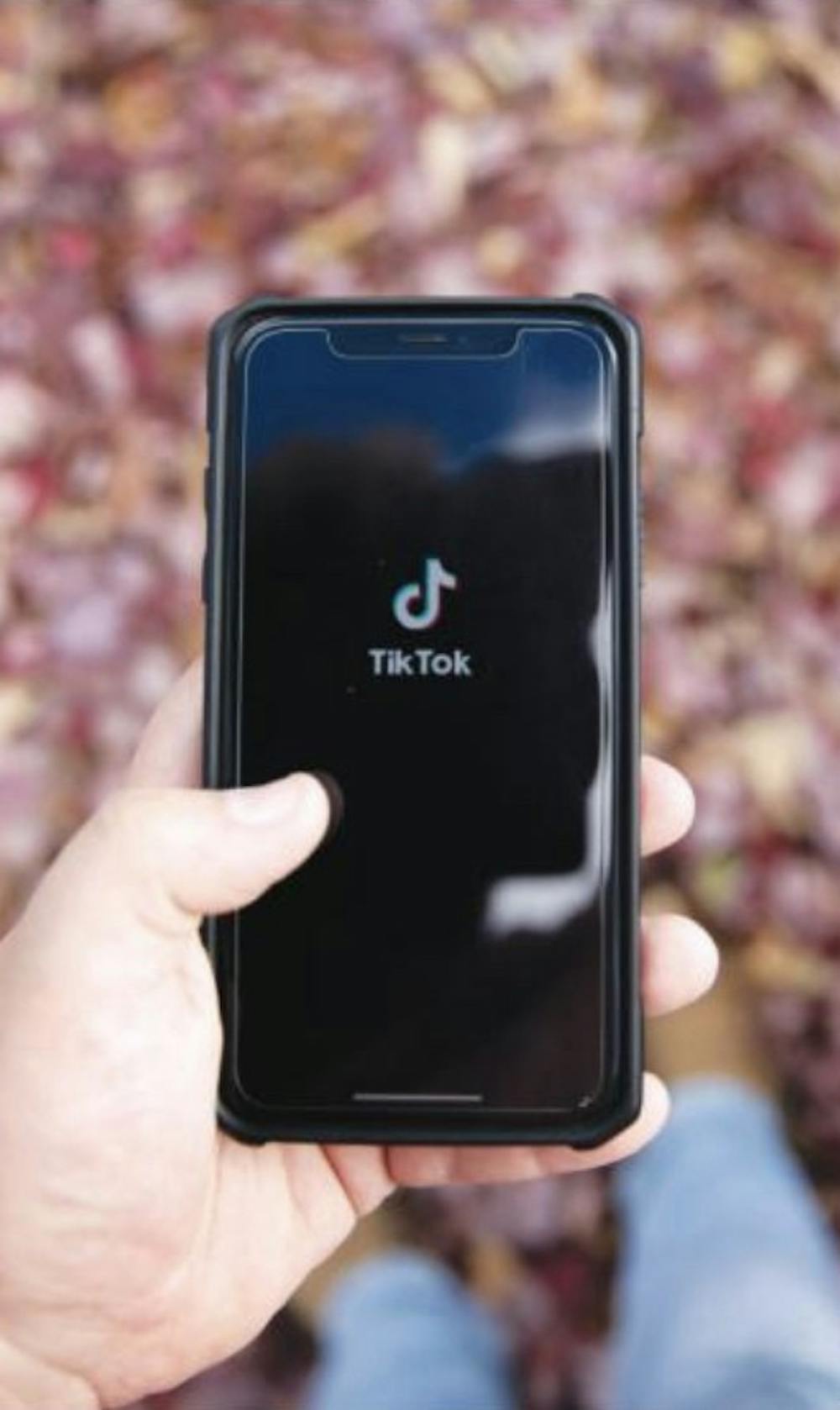Walking southeast on West Neely Avenue, traffic noise becomes quieter, and pedestrians can find large greenspaces on North Minnetrista Parkway. Minnetrista’s walking trails and cultural exhibits make it one of junior social work major Elaina Kobitz’s favorite places to be during summers in Muncie.
Kobitz featured Minnetrista and other outdoor walking spaces close to Muncie on Ball State’s TikTok account in July 2020. Kobitz said she applied to be on the Ball State marketing team last summer and made TikToks as part of that job.
“I think that the Ball State TikTok does a good job of showing things on both the Ball State campus and also the Muncie community,” Kobitz said.
TikTok is a social media app that lets its users share short videos with background music from its commercial music library, which also includes sound tracks from television shows and trending videos.
Melinda Messineo, Ball State professor of sociology, said younger generations typically use social media frequently and likely spent even more time on these platforms during earlier months of the coronavirus pandemic, creating a perfect opportunity for TikTok to establish itself in the social media scene. She said TikTok’s ability to quickly spread information can lend itself to activism.
“Activism requires open channels of communication to a broad group of people quickly. TikTok is a great platform for this,” Messineo said via email. “TikTok and later versions of older platforms provide for faster dissemination and sharing.”
TikTok was the target of a proposed download ban in August 2020 by President Donald Trump’s administration, claiming the app is a threat to national security due to the way it collects data on its users.
Huseyin Ergin, Ball State assistant professor of computer science, said data collection that’s not necessary for an app’s function can pose a privacy risk to app users.
“It’s more like a privacy concern anyway because you’re collecting my data, and I can be targeted for it,” Ergin said. “If you don’t protect it [well], I can be targeted for it.”
Some of the traits Ergin mentioned that could be targeted are “beliefs, views and membership to organizations.” He said by collecting photos or location data that are unnecessary for an app to function, third parties can exploit user data for targeted advertisements.
While Ergin agreed that TikTok poses a security risk, he made a point of clarifying that a lot of software is a possible security risk on a national and personal level.
“Any company that externally keeps the data, and we don’t know what they’re collecting about us, poses a security threat,” he said. “It doesn’t matter if it’s TikTok, and even U.S. companies aren’t exempt then.”
Chad Kinsella, assistant professor of political science, said he is interested in the potential TikTok ban because his daughter is an active TikTok user.
“[Trump has] been very consistent in his disliking of the Chinese government and some of the things that they've been doing, but [the ban is] definitely a possibility,” Kinsella said.
U.S. presidents are able to regulate issues of national security through executive orders, which are not specifically mentioned in the Constitution but are an implied power under Article II, Section 3, known as the “faithful execution clause.”
TikTok was originally scheduled to be banned Sept. 20 via an executive order, but some U.S. companies, including Microsoft, Facebook, Alphabet Inc., Amazon and Apple, are interested in buying the app. Users can currently continue to update and download TikTok at least through Nov. 12, but if a U.S. company buys the app, security concerns may be alleviated.
“According to the company, and several other companies, a buyer was imminent,” Kinsella said. “That’s my understanding as to why there’s been a delay and the limbo.”
Dan Human, assistant director of digital marketing, said Ball State’s Marketing and Communications staff created a Ball State TikTok profile in April 2020.
“We set up an account because the social media network had grown into hundreds of millions of users worldwide and was one of the most downloaded apps,” he said. “This also gave us a chance to try a few new things creatively.”
Human said the TikTok team, which includes Ball State administrators and student orientation leaders, uses the platform to communicate with both prospective and current students. He said TikTok has a different user demographic than other social media, so Ball State’s posts are more informal on TikTok than on other platforms.
“We push the creative limits quite a bit more here and try to avoid being overly official,” Human said. “Ultimately, we’re using TikTok as a way to better share the great attributes of our university and our campus life.”
Kobitz said she was confused when she heard TikTok could potentially be banned from the app store and thinks it poses a similar privacy and data collection risk as other social media.
Kobitz said she watches TikToks but doesn’t make many on her personal profile. She added that making TikToks this summer benefited Ball State.
“TikTok has been a social media platform that has grown so quickly and so fast,” Kobitz said. “I wanted to be a part of something to make an even bigger difference at Ball State because I love Ball State. Anything that I could do to show students some of the benefits of being a Cardinal, I was interested in doing that.”
Contact Jaden Hasse with comments at jdhasse@bsu.edu or on Twitter @HasseJaden. Contact Grace McCormick with comments at grmccormick@bsu.edu or on Twitter @graceMc564.





